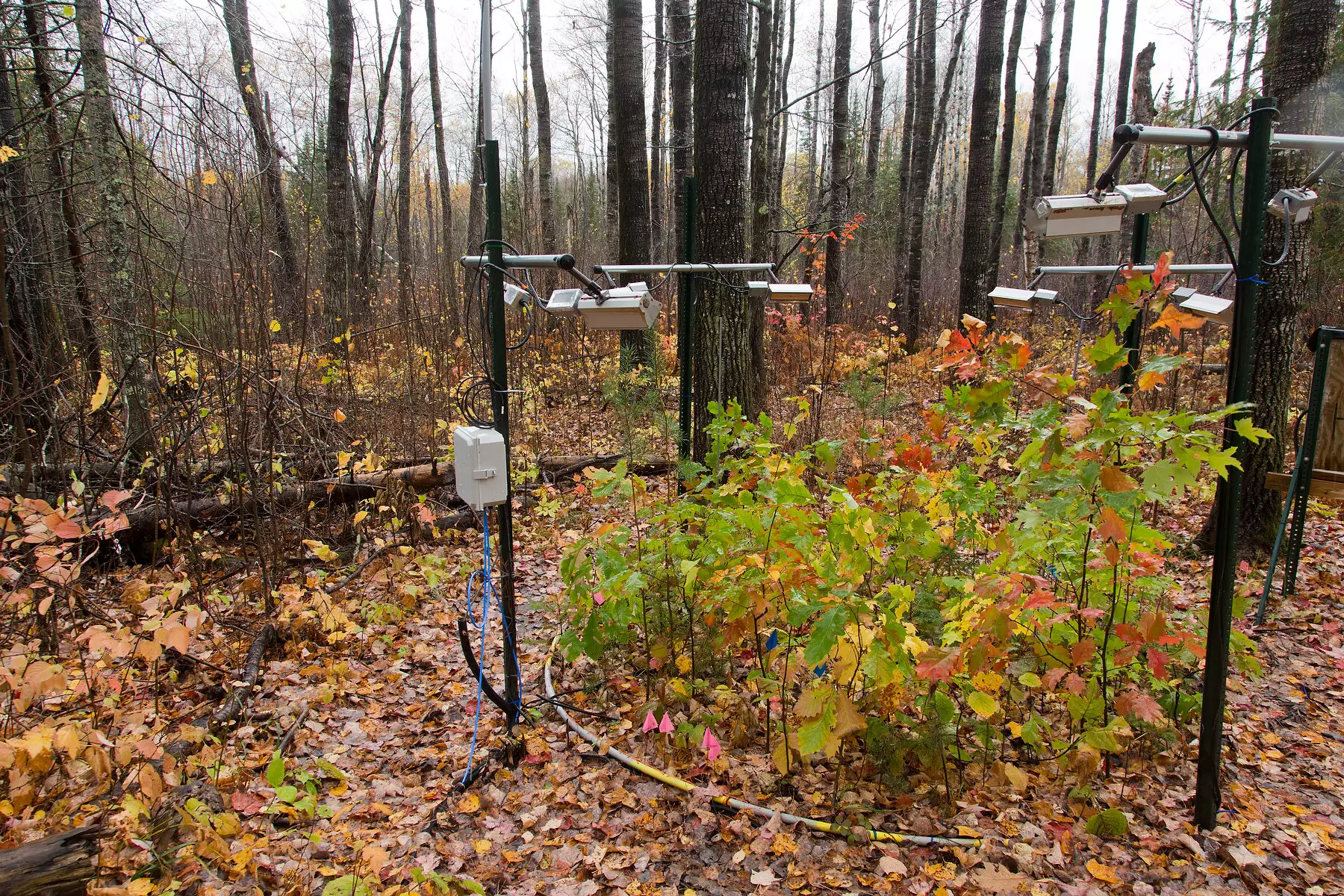The importance of northern forest soils as key reservoirs for storing carbon dioxide is being challenged by a groundbreaking experiment led by Peter Reich of the University of Michigan. This experiment reveals that, as the planet warms, more carbon is escaping from the soil than is being absorbed by plants, posing a threat to the delicate balance of our ecosystem. The findings of this study, published in Nature Geoscience, paint a grim picture of the future of our planet as temperatures continue to rise.
Unlike previous research projects, Reich’s experiment stands out for its comprehensive approach to studying the effects of rising temperatures on carbon flux in forest soils. By controlling both soil and above-ground temperatures in open air settings over a period of more than a dozen years, the researchers were able to simulate real-world conditions with unparalleled accuracy. This level of detail and precision sets this experiment apart as the most realistic and thorough of its kind in the world.
Undertaking such an ambitious experiment comes at a high cost, both in terms of funding and resources. The support of organizations like the National Science Foundation, the U.S. Department of Energy, and the University of Minnesota was crucial in making this research possible. Reich and his team collaborated with colleagues from various institutions to conduct their study at two sites in northern Minnesota, using a total of 72 plots to investigate different warming scenarios compared to ambient conditions.
The increase in soil respiration, which releases carbon dioxide into the atmosphere, was found to be significant in plots with higher temperatures. In the more extreme warming scenario, soil respiration increased by 17%, while in the moderate warming case, it was 7%. The carbon released into the atmosphere comes from the metabolic processes of plant roots and soil microbes, who feed on organic matter found in the soil. This disturbance in the carbon cycle has serious implications for climate change and the health of our planet.
Despite the rise in carbon dioxide emissions from the soil due to warming temperatures, the researchers discovered that the increase could have been even greater. Factors such as soil moisture, which decreases with higher temperatures, played a role in regulating the release of carbon from the soil. Microbes, essential for breaking down organic matter, thrive in wetter soils but were constrained in drier conditions. This unexpected finding sheds light on the complex interactions that govern carbon flux in forest ecosystems.
The implications of this study are clear: as temperatures continue to rise, the carbon stored in forest soils will be at risk of returning to the atmosphere. This increased release of carbon dioxide poses a grave threat to the stability of our climate and the health of our planet. The urgency of addressing this issue cannot be overstated, as the consequences of unchecked carbon flux in northern forest soils could be dire. It is essential for policymakers, researchers, and the public to come together to find solutions to mitigate the impacts of rising temperatures on our environment.


Leave a Reply